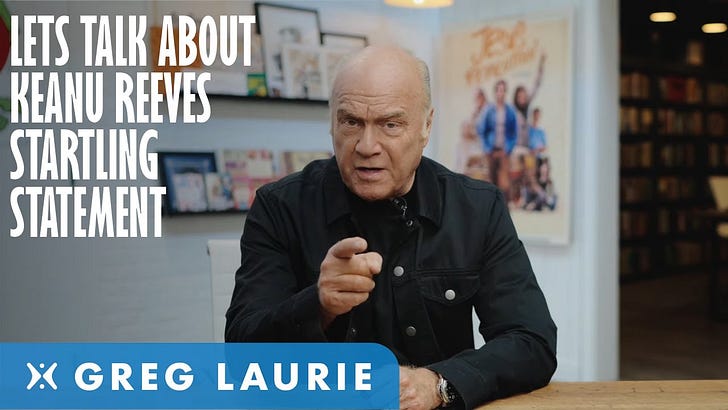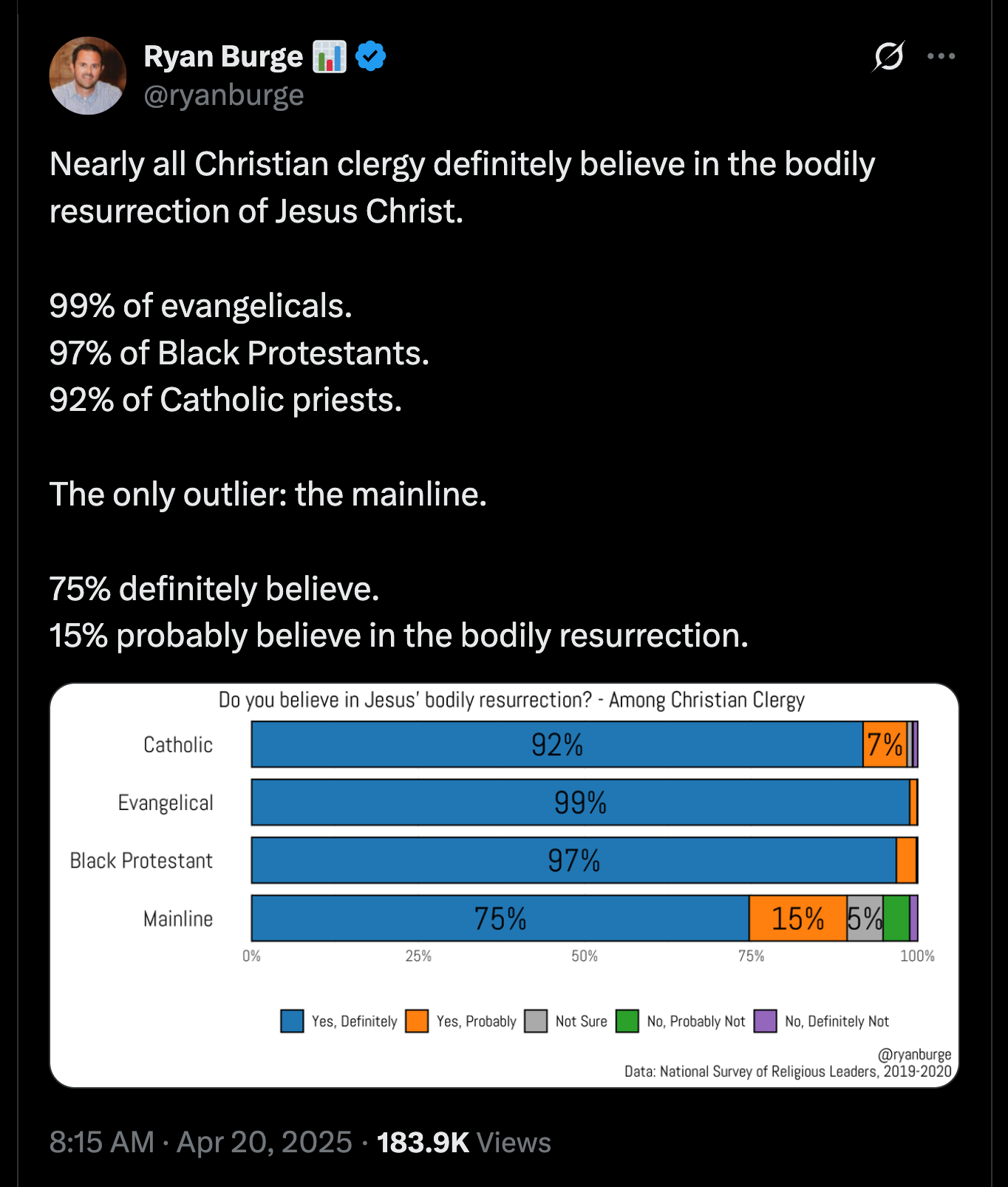Concerning Hollywood heaven, mainline faith and nones
In America it's popular to believe in life after death, whatever that means
The week after Easter (Pascha in the East) is a good time to ask questions about eternal life. The death of a pope only adds to the drama.
It isn’t a surprise that Pope Francis believed in a modern, radically inclusive heaven.
That’s pretty normal. As the omnipresent chart-master Ryan Burge (a former GetReligion.org contributor) recently noted, 92% of Catholic priests “definitely” believe in the “bodily” resurrection of Jesus and another 7% believe this doctrine is “probably” true.
However, check out the numbers for the “mainline” Protestant clergy in that same chart, in which 75% “definitely” belief in the bodily resurrection of their Lord, while another 15% “probably” believe.
As for me, I wondered how survey participants defined the term “bodily” in that question. Some may have separated that wording from the belief that Jesus was resurrected into a radically transformed, “heavenly” body. By the way, that isn’t the same stance as the one advocated by people who say the hopeful disciples were granted some kind of “vision” of Jesus, after his death.
Here’s the full Burge chart on that issue:
Now, the more interesting question is this: How many Americans — especially among the vaguely “religious” — hold what could be considered a “Hollywood” approach to heaven?
In terms of the visions seen in multiplexes, this is basically the “walking into the light” doctrine in which folks are reunited with their loved ones (check out the classic ending of “Ghost”), but there is no talk about sin, judgement, repentance, embracing Jesus, etc.
I would argue that this is the key issue in a fascinating Graphs about Religion post by Burge that ran with this headline: “Belief in an Afterlife is Increasing in the United States — Even among the non-religious.”
The bottom line: If clergy want to talk to “nones” or “none of the aboves,” they need to explore the religious beliefs of the people who, basically, insist that they do not need to embrace organized religion or strive to follow any transcendent doctrines. It’s that whole “Sheilaism” thing that researchers have been discussing for decades.
Keep reading with a 7-day free trial
Subscribe to Terry Mattingly -- Rational Sheep to keep reading this post and get 7 days of free access to the full post archives.





